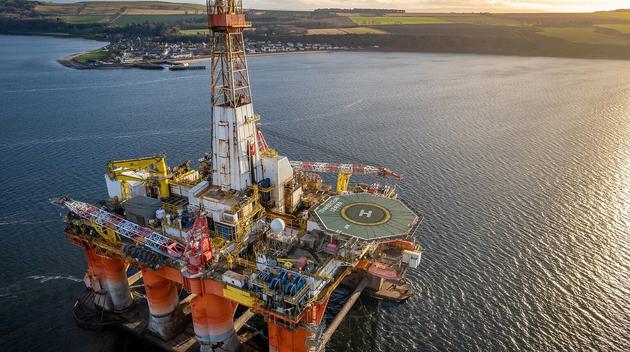Back to Articles
Why the UK government’s case for investment in new oil and gas production is flawed
9th Aug 2023
By Ella Ward Parsons, Graduate Sustainability Consultant
Ella makes a dispassionate case for why the government’s recent pledge to continue to invest in oil and gas is a flawed strategy in the face of alternative clean energy strategies.
Rishi Sunak has announced plans to authorise over 100 new North Sea Licences, pledging to “max out” the UK’s oil and gas reserves - an approach he insists remains consistent with the UK’s net zero targets.
However, at a time where the effects of climate change have become harshly apparent, with raging wildfires, severe flooding and record-breaking extreme temperatures across much of Europe, how can increasing fossil fuel output be the answer? According to Sunak, increased oil and gas exploration is positive and necessary because of the following:
1. Energy security
In the wake of Putin’s invasion of Ukraine and his weaponisation of energy, reducing Britain’s dependence on imported fossil fuels is a high priority for the government. This, they claim will safeguard energy bills for the country into the future.
However, whilst it is true the UK imports a large proportion of its oil and gas, a significant share of UK produced oil and gas is still exported (around 80% oil). This is in part because of the limited gas storage and oil refinery capacity in the UK. We therefore must assume that future oil and gas production will also not be retained in the UK, which means it will not be playing a role in protecting the UK’s energy prices from the volatility of the international energy market. Furthermore, new UK fields are unlikely to deliver for many years, so any energy security gained will not be realised for some time.
Instead, the UK’s energy security drive should focus on increasing energy efficiency and growing its vast home-grown renewable resources; providing a cleaner, greener and faster solution to the energy security issue, and protecting consumer bills by reducing demand for fossil fuels.
2. “It’s good for the climate”
New research shows that the carbon footprint of imported liquified natural gas (LNG) is nearly four times higher than domestic production. Sunak argues that increased exploration in the North Sea will therefore be “good for the climate”.
This is problematic for a number of reasons. Firstly, it is burning, not producing and transporting gas which is the largest source of carbon dioxide, and moreover most gas imported to the UK comes via a pipeline from Norway which tends to be produced more cleanly than its British equivalent.
Also, as mentioned above, unless export/import patterns markedly change, it is unlikely the UK will stop importing liquified natural gas even with increased UK gas exploration.
Finally, how can it be environmentally beneficial when the world’s scientists agree that new fossil fuels are incompatible with meeting the internationally agreed limit of 1.5C of global heating? Most fossil fuel reserves must stay in the ground, scientists say. We should therefore be reducing our fossil fuel reliance by investing in renewable energy and heat pumps, rather than focusing on reducing the carbon emission associated with production.
3. Financial gain
In the same announcement, the government also disclosed locations for two new carbon capture usage and storage clusters - with £billions expected to be pumped into the schemes. The government predicts this, coupled with increased gas/oil production, will create jobs and generate tax revenue to fund public services.
However, according to a new report by the UK Energy Research Centre (UKERC), renewable energy has the potential to create three times as many jobs per million pounds invested compared to gas or coal power, while investment in energy efficiency can create five times as many. So, whilst oil and gas continue to contribute to our economy, does it not make more sense for the economy to focus on growing the renewable sector?
4. Required in a net zero future
Sunak framed this increased exploration into oil and gas as necessary for the UK to reach our 2050 net zero goals, as a quarter of energy will still need to come from oil and gas sources.
Whilst it is indisputable that oil and gas are necessary for the transition to net zero, the International Energy Agency (IEA) stated in 2021 that the global transition to net-zero by 2050 would require no new oil and gas capacity development, beyond what had already been agreed. The UK government plan to “max out” the North Sea therefore seems extreme and at odds with the net zero trajectory.
Where the focus should lie
The government should stop sustaining the UK’s reliance on fossil fuels and instead focus their entire efforts on upgrading grid infrastructure and capacity, expanding renewable solutions and increasing efficiency.
This will increase energy security, protect consumer prices, create green jobs and ensure the UK reaches its climate targets. Failing to do so will compromise the UK’s position on the world stage as a leader on climate change.















